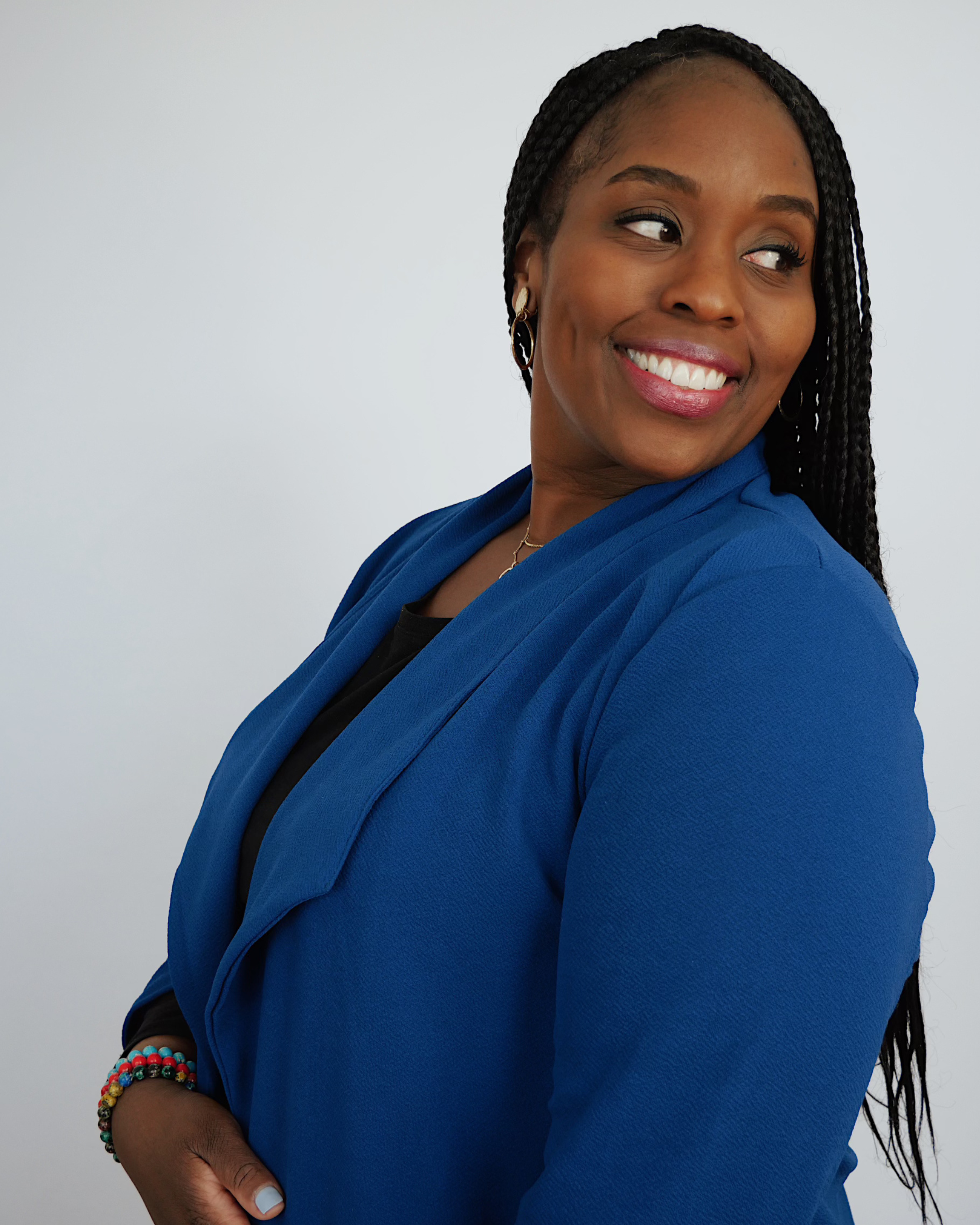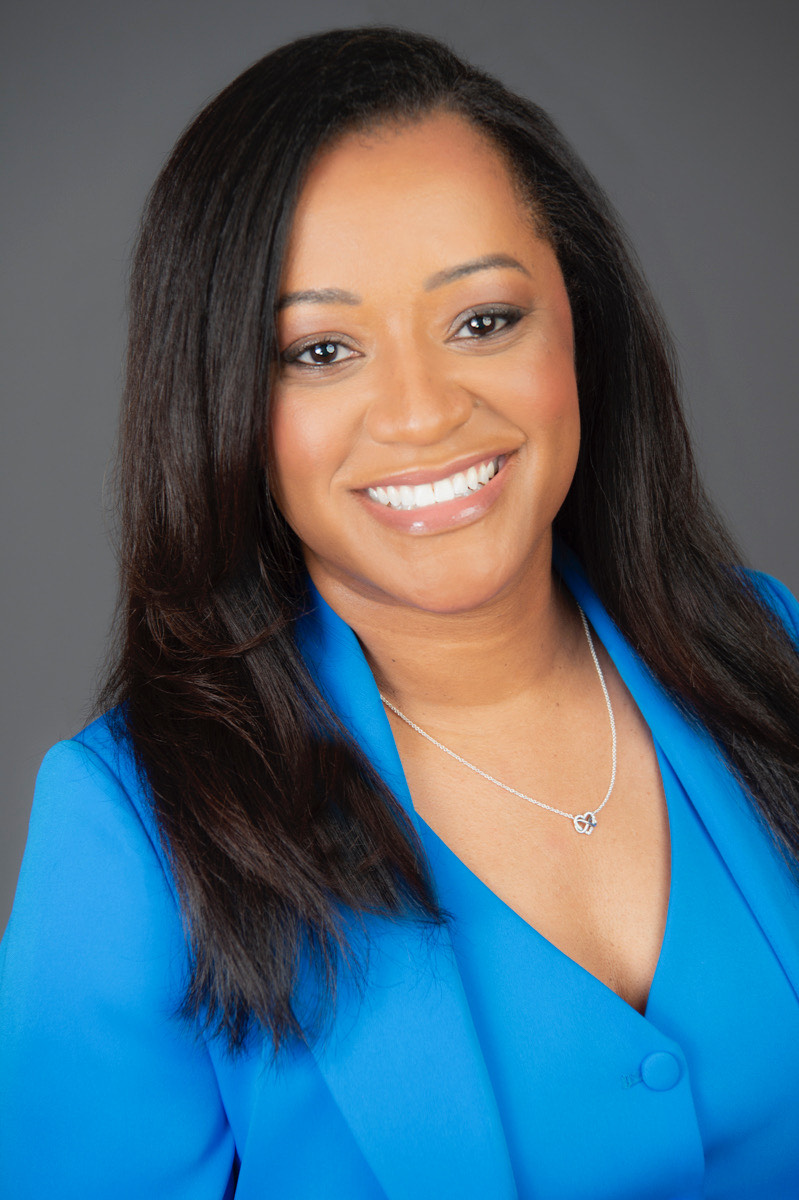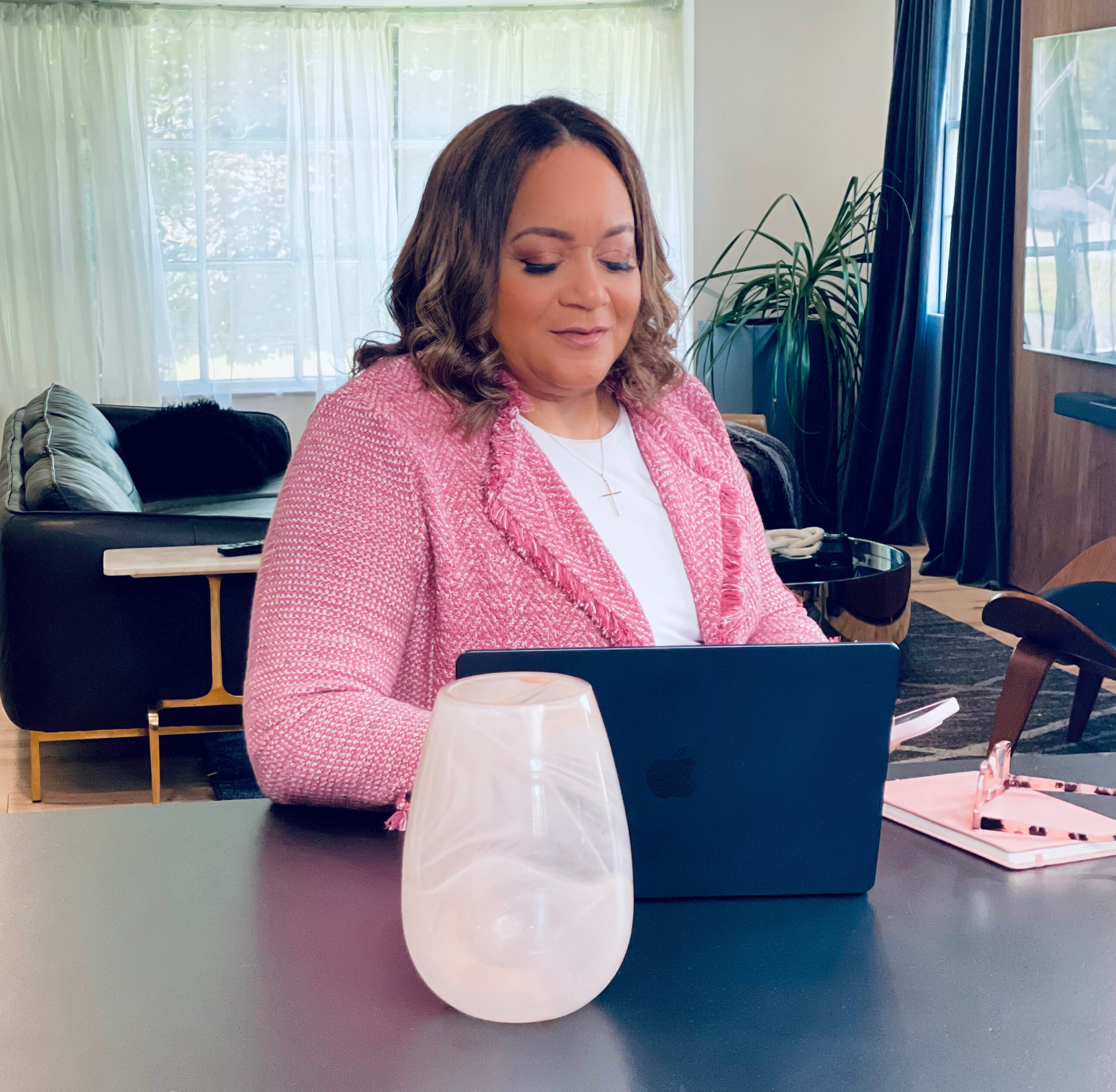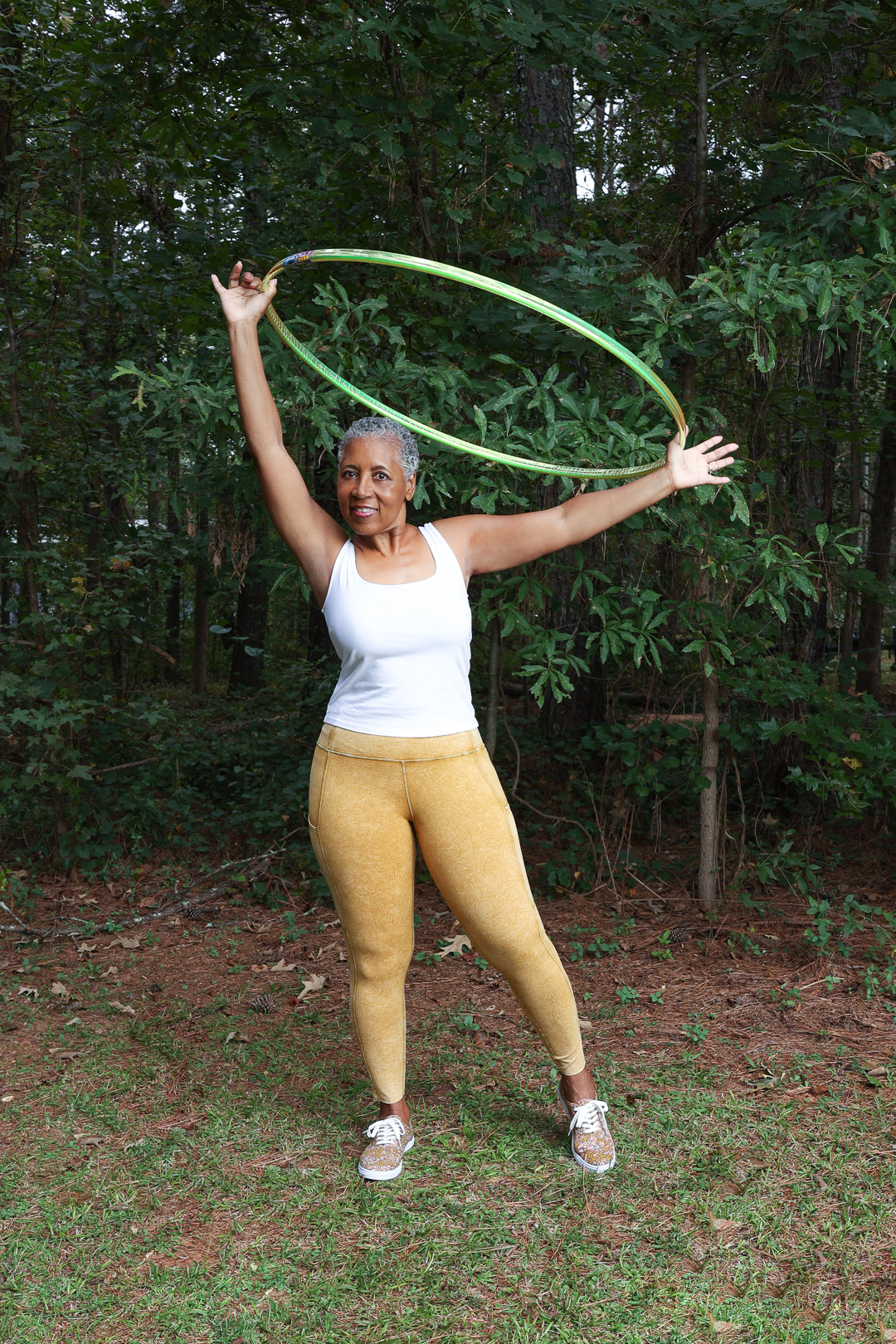Time for a heart-to-heart. We’ve reached that fabulous stage in life where we’re supposed to have it all figured out, right? Our kids are grown (mostly), we’re navigating the joys (and challenges) of aging parents, and maybe even contemplating a new chapter in our careers or relationships. But amidst the celebrations and milestones, how often do we pause to check in with ourselves? How are we really doing?
Today, we’re exploring the often-overlooked topic of mental wellness for Black women over 50. And trust me, we’re in good hands. Joining us is Chimère G. Holmes, a licensed professional counselor with a heart of gold and a passion for guiding women on their healing journeys. Chimère is the founder and owner of Be Ye Renewed Counseling, a boutique private practice where she beautifully blends her love of spirituality and psychology. As she shares on her website, ChimereHolmes.com, she’s deeply committed to helping people “become aware of their innate worth and life purpose while achieving emotional wellness in order to live their best lives.”
Chimère’s path to becoming a therapist was anything but straightforward. With a background in communications and theology, she brings a unique blend of experience and wisdom to her practice. As she eloquently puts it, “It’s okay to talk to Jesus and a therapist too.” This resonates deeply with many of us who were raised to rely solely on faith and prayer to navigate life’s challenges.
Beyond the Surface: Unveiling Our True Selves
For too long, Black women have been conditioned to suppress their emotions, to put on a brave face and “keep it moving.” We’ve been taught to prioritize the needs of others, often at the expense of our own well-being. But as we enter this new phase of life, it’s time to shed those expectations and embrace our authentic selves.
Chimère encourages us to take off the superwoman cape and acknowledge our vulnerabilities. “It’s okay to not be okay,” she emphasizes. “We need to normalize the full spectrum of human emotions, even the messy ones.”
This permission to feel, to be vulnerable, is incredibly liberating. It allows us to release the burden of perfection and embrace the beauty of our imperfections.

Navigating Life’s Transitions with Grace and Support
Life at this stage is a rich and complex experience, brimming with both joy and challenges. We’re often sandwiched between caring for aging parents and adult children, grappling with the changes of menopause, and perhaps even redefining our careers or relationships.
“You’re hit from so many different angles as a Black woman going through her mid-life trajectory,” Chimère acknowledges. “If reframed optimistically, it can be an exciting season of rediscovery, refocusing, and renegotiating.”
It’s important to remember that we don’t have to navigate these transitions alone. As Chimère explains, developing our “distress tolerance” – our ability to manage difficult emotions and situations without making them worse – is key. Therapy can provide tools and strategies to strengthen our resilience and emotional regulation. And for those of us experiencing the changes of menopause, it’s crucial to acknowledge the emotional impact this transition can have. Seeking support during this time can make a world of difference.
Chimère also highlights the importance of sisterhood and community. “People need people. Intentionally invest in all of your relationships, from girlfriends to your faith community,” she advises. “Circle back to those old connections and those beneficial bonds that were really life-giving for you.”
Finding the Right Therapist: Representation Matters
When it comes to finding a therapist, Chimère emphasizes the importance of representation. “It’s difficult to find representation, whether it’s a psychiatrist or a licensed therapist, who looks like you, and can appreciate your cultural lived experience,” she shares. “A lot of women of color are more prone to reaching out to a clinician who actually looks like them and might have a shared life experience. Cultural humility is vital in the therapeutic relationship.”
If finding a therapist who understands the nuances of your experience is important to you, Chimère suggests starting with your current insurance provider. Reach out to your insurance company to request a list of in-network therapists. This will help you narrow down your options and ensure that your sessions are covered by your insurance plan.

Chimère G. Holmes
If you’re unable to find a therapist who meets your needs through your insurance network, Chimère recommends exploring online directories like Psychology Today. This platform allows you to filter your search by specialty, location, insurance, and even therapist identity, making it easier to find a therapist who aligns with your needs. You can also seek recommendations from friends or family members who have experience with therapy.
Remember, finding the right therapist is a personal journey. Don’t be afraid to reach out to several therapists before making a decision. It’s important to find someone who you feel comfortable with and who you believe can support you on your healing journey.
Nourishing Your Mind, Body, and Soul: Group Therapy and the Power of “Me Time”
In addition to individual therapy, Chimère is a strong advocate for the power of group therapy. “There’s so much power and promise in group psychotherapy,” she shares. “The process can be transformative.” Group therapy provides a unique opportunity to connect with other women who share similar experiences, fostering a sense of community and belonging. It can be incredibly validating to hear others’ stories and realize that you’re not alone in your struggles.
I can personally attest to this, having benefited tremendously from group therapy myself. Fifteen years ago, after a near-death medical experience with lasting chronic issues, I joined a group of mature women facing similar physical challenges. The shared struggles and unwavering support within that group were invaluable to my healing journey.
But alongside the healing power of connection, Chimère also emphasizes the importance of carving out “me time” – those precious moments dedicated solely to nurturing your own well-being. In the midst of caring for others, it’s easy to lose sight of ourselves and our own needs. “What brings you joy? What inspires you?” she asks. “It’s time to tap back into those things that make your soul sing.”
Whether it’s joining a supportive group therapy session or pursuing a new hobby, rekindling an old interest, or simply carving out time for quiet reflection, prioritizing self-care is essential for our mental and emotional well-being. Think of it as a holistic approach to nourishment – feeding your mind, body, and soul with experiences that bring you joy, peace, and a sense of connection.
Embracing Our Faith and Spirituality
For many Black women, faith and spirituality are integral parts of our lives. Chimère encourages us to integrate our faith with therapy, finding a balance that supports our overall well-being.
“Proverbs 11:14 says, ‘Where there is no counsel, the people fall; But in the multitude of counselors there is safety,’ she reminds us. “I am a firm believer that God has granted us common sense. It is necessary to trust in the Lord, believe in the word and supernatural power of God, and it’s also okay to seek professional help for psychiatric and psychological challenges when we need it.”
This holistic approach to healing honors both our spiritual and emotional needs, allowing us to draw strength from multiple sources.
Breaking the Silence: Taking the First Step

If you’re reading this and feeling a nudge to seek support, know that you’re not alone. Taking the first step can be challenging, but it’s a courageous act of self-love.
Chimère offers practical advice for those who may be hesitant: start by checking in with yourself, talk to a trusted friend or family member, and explore resources like Therapy for Black Girls, or Black Men Heal for your male loved one.
“Remember,” she says, “therapy works and talking is curative. You have only one precious life. You owe it to yourself to feel your best, heal past wounds and unresolved traumas in order to really thrive.”
A Message of Hope and Empowerment
As our conversation comes to a close, Chimère leaves us with a powerful message of hope and encouragement: “Be kinder to yourselves. Self-compassion (treating yourself the same way you would treat a good friend) is vital and essential. Self-love is definitely what our fractured world is in need of today. When we love ourselves accordingly, we can properly love our neighbors, and this would lead to more loving families and communities—what the world needs now is love, sweet love.”
Ladies, let’s embrace our authentic selves, flaws and all. Let’s break the silence around mental health and create a space where we can support and uplift one another.
Remember, seeking help is not a sign of weakness, but a testament to our strength and resilience. You are not alone. Healing is possible.
Resources:
- Therapy for Black Girls: https://therapyforblackgirls.com/
- Psychology Today: https://www.psychologytoday.com/us/therapists
- Black Men Heal: https://blackmenheal.org/
- National Suicide Prevention Lifeline: 988
Chimère G. Holmes, MA, MSEd, LPC (PhD Candidate)
Bringing a diverse array of experience and skill sets to the realm of counseling, clinical supervision, teaching, and consulting, Chimère G. Holmes is an ordained Reverend and Licensed Professional Counselor. Chimère earned her bachelor’s degree in Communications from Immaculata University before obtaining her first Master’s degree in Theology and Pastoral Ministry from Villanova University. A Penn GSE alumna, Chimère’s secondary Master’s degree is in School & Mental Health Counseling from the University of Pennsylvania. To date, Chimère is finalizing her PhD in Marriage and Family Therapy at Eastern University.
Chimère offers years of pastoral training and a clinical acumen that consists of women’s health, couples therapy, group psychotherapy, holistic care, and BIPOC-specific culturally informed care. She garnered her skills from specialized training and accreditations through the Council for Relationships and the Philadelphia School of Psychoanalysis (Philadelphia, Pa). Chimère was named a 2018 Power Woman by Main Line Today. A regular media contributor, Chimère has served as a mental health expert on television news including: The Grio, CBS3, 6ABC, NBC10, PHL-17, Fox 29, and Cheddar News, in addition to print media outlets such as Today.com, Very Well Mind, and Thrive Global.
Websites: www.Chimereholmes.com
Contact Information
https://www.psychologytoday.com/us/therapists/chimere-g-holmes-philadelphia-pa/219597
Social: Instagram @beyerenewed_counseling
We’d love to read your comments on this blog. Please post below.







Comments +